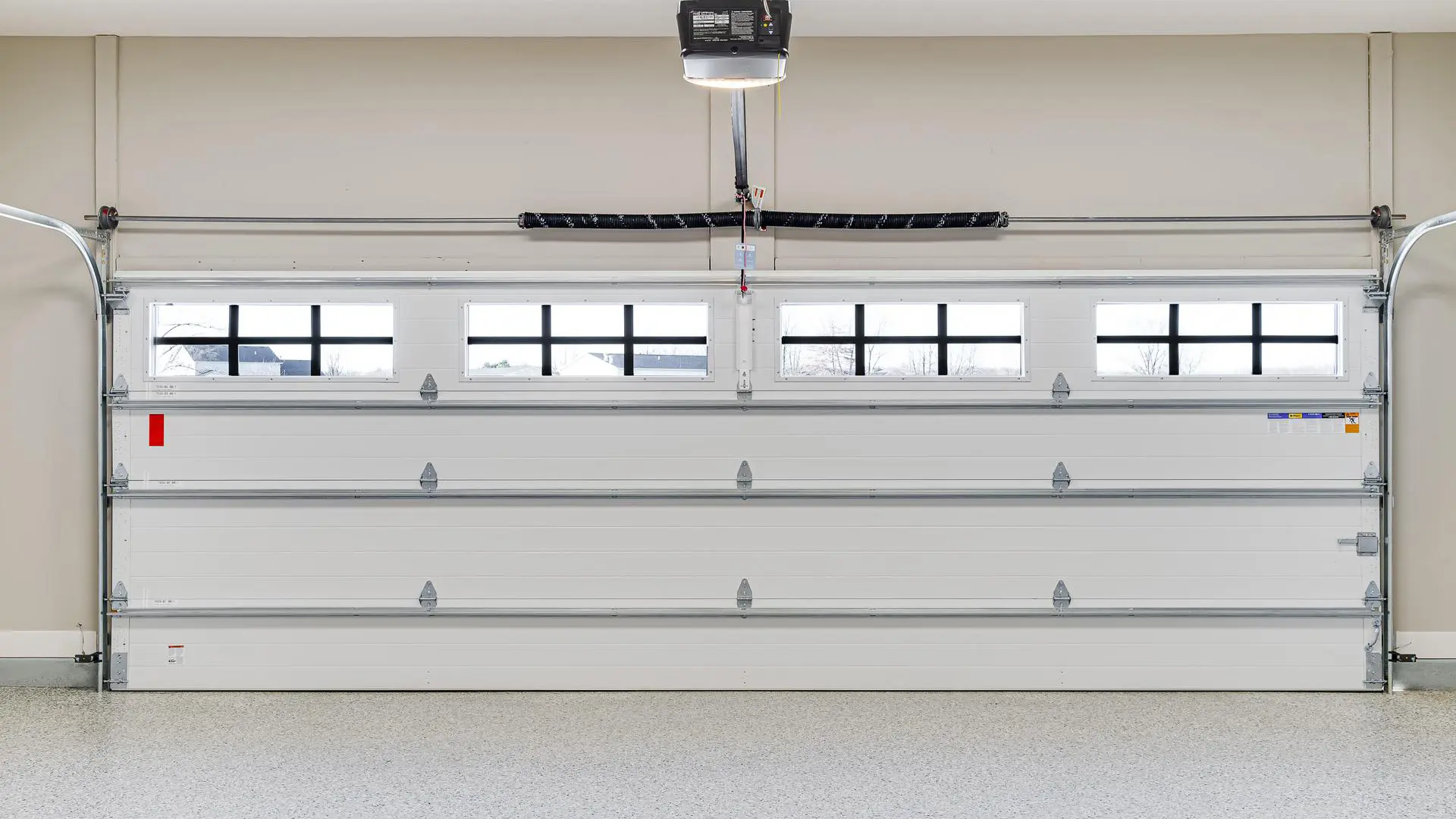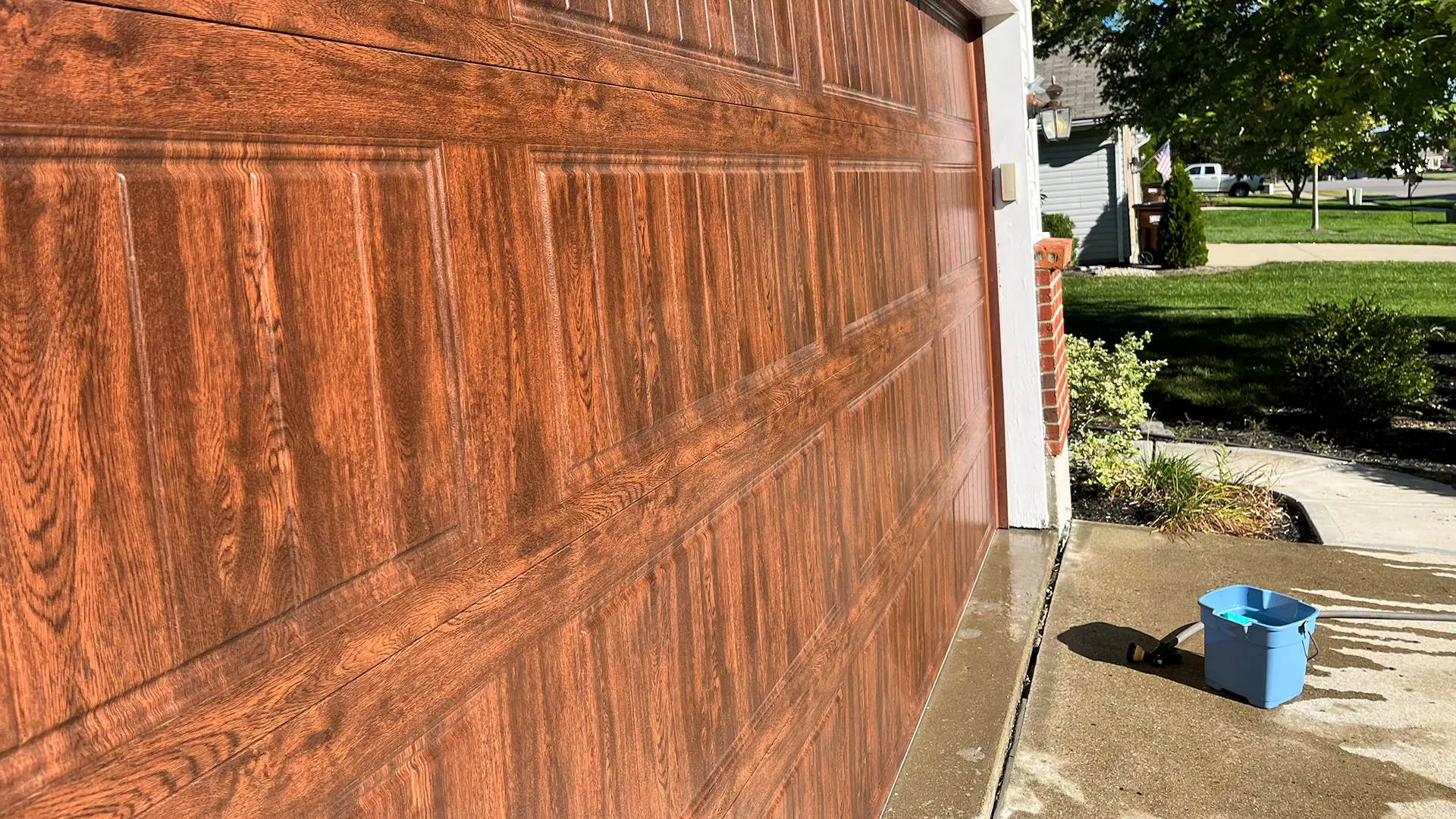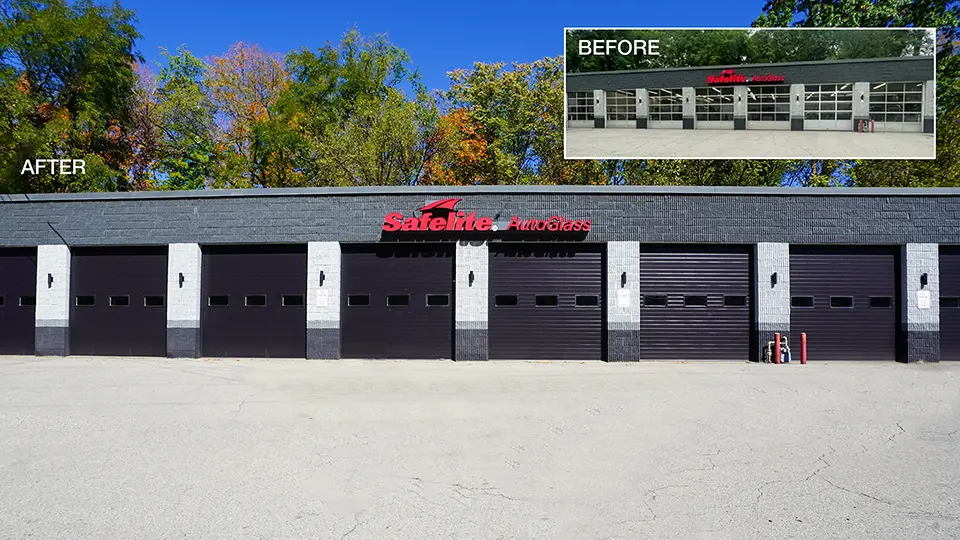Your garage door is likely the largest opening in your home, making it a significant contributor to your home's energy efficiency. An insulated garage door can play a big role in reducing heat transfer and air infiltration, helping to lower your energy bills and create a more comfortable environment. Whether you're looking to upgrade your existing door or install a new one, understanding the benefits and options for insulated garage doors can help you make an informed decision.
The Role of Insulated Garage Doors in Energy Conservation
A garage door's construction greatly impacts the energy efficiency of the garage and, by extension, the entire home. Non-insulated or minimally insulated garage doors allow heat to escape in the winter and enter in the summer, forcing HVAC systems to work harder to maintain a comfortable temperature in living areas. This increased energy consumption leads to higher utility bills and contributes to greenhouse gas emissions.
By controlling the temperature in your garage, you can decrease the load on your home's heating and cooling system, leading to potential savings on your energy bills. Insulated garage doors can help with energy conservation, especially in homes with attached garages. Unlike non-insulated models, these doors feature a thick insulation core sandwiched between two steel skins. This core, typically made of foam, significantly reduces heat transfer between the garage interior and the outdoors.
In the winter, insulated garage doors help retain warmth, decreasing the load on your home's heating system. Conversely, they keep the garage cooler in the summer, reducing the heat that can seep into living spaces. This results in lower energy bills year-round.
Understanding Insulated Garage Doors
Insulated garage doors are constructed with a layer of insulation sandwiched between the door's outer and inner skins. The type and thickness of the insulation will impact the door's R-value, which measures its resistance to heat flow. A higher R-value indicates greater thermal efficiency.
When considering an insulated garage door, there are several factors homeowners should understand to maximize energy efficiency and overall value. First, the door’s R-value measures the insulation's ability to resist heat flow. Look for higher R-values for optimal performance. But even lower R-values can provide some energy savings compared to non-insulated doors.
The type of insulation matters as well. Polystyrene or polyurethane foams are common and offer good results. Some doors may use fiberglass batts, but these can settle over time, reducing effectiveness.
Beyond the door itself, a proper seal is key. Ensure weatherstripping is in good condition to prevent heat from escaping. Additionally, consider the door's construction material. Steel doors are most common, but aluminum, wood, and composite options exist, each with their own benefits and drawbacks.
Finally, while insulated doors provide long-term energy savings, the upfront cost is typically higher than non-insulated models. Homeowners should weigh this against expected savings and the door's durability.
Types of Insulation Materials
When selecting an insulated garage door, there are a few different types of insulation materials available. Each option offers varying levels of energy efficiency, durability, and cost. Here's a breakdown of common insulation types found in garage doors:
- Polystyrene: This is a cost-effective insulation option that provides a good R-value per dollar spent. It's often the go-to choice for steel garage doors due to its ease of installation and reliable performance. While its R-value may not be the highest, polystyrene balances energy efficiency with affordability.
- Polyurethane: For maximum energy savings, polyurethane foam is the way to go. It offers the highest R-value per inch of any insulation material, making it ideal for homeowners who want to minimize heat transfer. Polyurethane is typically more expensive than other options, but its superior insulating properties can lead to substantial long-term energy savings.
- Fiberglass: For those on a tight budget, fiberglass batt insulation is a consideration. While it's less expensive than polystyrene or polyurethane, its R-value is lower, providing less energy efficiency. Additionally, fiberglass batts can settle over time, which may reduce their insulating performance.
Metrics and Standards for Assessing Energy Efficiency
When buying a new insulated garage door, it’s important to understand the key metrics and standards when evaluating the energy efficiency of different models. Here's a breakdown of what to look for:
- R-Value: This measures a material's resistance to heat flow. Essentially, it's a gauge of how well the insulation performs. A higher R-value indicates better insulating properties. For garage doors, R-values typically range from around R-6 to R-18. Homeowners should aim for the highest R-value possible within their budget for maximum energy savings.
- U-Factor: While R-value measures resistance to heat flow, the U-factor represents the rate of heat actually transferred through the material. It's essentially the inverse of R-value. A lower U-factor means less heat is transferred, leading to better energy efficiency. Look for garage doors with low U-factors for ideal results.
- Air Leakage Rating: Even well-insulated doors can lose efficiency through air leaks around the edges. Look for doors with an air leakage rating from a reputable organization like the International Energy Conservation Code (IECC). Lower air leakage ratings signify better sealing and improved energy efficiency.
- When shopping for an insulated garage door, don't be swayed by low prices alone. Take the time to check the metrics. While a more efficient door may be more expensive, the long-term energy savings will make it a worthwhile investment.
Benefits of Energy-Efficient Garage Doors
While the energy-saving potential is a major draw, energy-efficient garage doors offer numerous benefits that extend beyond just lowering your utility bills. Here are some of the advantages to consider:
- Improved Comfort: By maintaining a consistent temperature, energy-efficient garage doors make the space more comfortable for working on projects, pursuing hobbies, or just spending time in the garage. On frigid winter days, the garage will stay warmer, and in the sweltering summer, it will remain cooler. This makes the garage a more enjoyable space to be in.
- Increased Durability: Insulated garage doors are typically built with thicker, heavier-gauge steel than non-insulated models. This makes them stronger and less prone to dents and damage from everyday use. The insulation also adds structural integrity, helping the door resist warping. As a result, an energy-efficient garage door can have a longer lifespan and require less maintenance over the years.
- Better Noise Reduction: The insulation in energy-efficient doors serves as a sound buffer, minimizing both operational noise and exterior sounds. When the door opens or closes, it will make less racket, reducing disruptions. Additionally, you'll hear less street noise or neighbors' activity, making the garage a quieter space.
- Potential Increase in Home Value: Energy-efficient features are highly attractive to homebuyers, who increasingly seek ways to save on utilities and reduce their environmental impact. An insulated garage door can be a selling point if you decide to put your home on the market in the future. It signals to potential buyers that your home is equipped with modern, eco-friendly features.
Maximizing Energy Efficiency: Tips and Techniques
There are additional steps homeowners can take to get the most energy-saving benefits out of their insulated garage door. Proper installation, sealing gaps, and regular maintenance are key to minimizing heat transfer and air leaks.
- Proper Installation: A garage door is only as energy efficient as its installation. If the door isn't installed correctly, gaps and improper sealing can negate the benefits of insulation. It's highly recommended to have a professional handle the installation. They'll ensure the door is level, sealed properly, and its components are adjusted correctly for smooth, efficient operation.
- Seal Gaps: Even with proper installation, gaps can develop over time. Regularly inspect the door's perimeter, threshold, and any windows for signs of air leaks. Use weatherstripping or spray foam insulation to seal any gaps you find. Don't forget to check the seal between the door and the opener for any signs of wear. A well-sealed door prevents both heat loss and gain, maximizing energy efficiency.
- Regular Maintenance: Like any moving part, garage doors require upkeep to maintain optimal performance. Regularly lubricate hinges and rollers to keep the door moving smoothly (we recommend Clopay’s Pro Lube Synthetic Garage Door Lubricant. DO NOT use WD-40, it’s not a lubricant). Tighten any loose bolts or screws and replace worn-out parts. Also, wash the door to keep it clean and prevent dirt from interfering with its sealing.
By combining a well-insulated garage door with proper installation, sealing, and maintenance, you can create an energy-efficient barrier between their garage and the outdoors. This not only saves on utility bills but also makes the garage a more comfortable space and potentially increases the home's value.
How Energy Efficient are Insulated Garage Doors with Windows?
Windows in your garage door can provide natural light and improve the door's appearance, but they can also impact the door's overall energy efficiency. Glass is a poor insulator, so heat can escape more easily through windows. Here’s what to consider:
Impact of Windows on Overall Energy Efficiency
Windows inherently introduce thermal breaks in the door's insulation, reducing its overall R-value. This is because glass is a less effective insulator than the foam core used in insulated garage doors. As a result, windows allow for both heat gain during the summer and heat loss in the winter, increasing the load on your home's HVAC system.
Types of Windows and Their Energy Performance
Not all windows are created equal when it comes to energy efficiency. Look for windows with double- or triple-pane glazing, as the additional airspaces provide better insulation. Low-emissivity (low-e) coatings can also help reflect heat rather than absorb it. Insulating spacers between the glass panes further minimize heat transfer.
Strategies for Maximizing Energy Efficiency with Windowed Garage Doors
If you still want the natural light windows provide, there are ways to minimize their energy impact. You can use smaller windows to reduce the total area of heat transfer. Or position the windows higher on the door, which limits the direct sunlight they receive, decreasing heat gain during the summer. You can also apply tinting or install shading devices like overhangs to further block direct sunlight.
Are Insulated Glass Garage Doors Energy Efficient?
If energy efficiency and maintaining a consistent garage temperature are your top priorities, glass garage doors might not be the best choice. That said, while glass garage doors may not offer the best energy efficiency out of the box, there are ways to improve their performance. Consider upgrading to a frame with polyurethane insulation and choosing thicker, insulated glass panels. These modifications can significantly enhance the energy efficiency of your glass garage doors.
Yes, windows on a garage door can enhance its appearance, but their impact on energy efficiency is undeniable. Homeowners should carefully weigh the aesthetic benefits against the decreased energy efficiency.
Browse Our Energy-Efficient Residential Garage Doors with Clopay
Insulated garage doors play a vital role in maintaining your home's energy efficiency. By understanding the different types of insulation, how to assess energy efficiency, and the benefits of insulated doors, you can make an informed decision when selecting a new garage door. Remember to also consider factors like proper installation, regular maintenance, and the specific needs of your garage space. Check out the residential garage doors offered by Clopay and find a dealer close to you when you’re ready to buy or have any questions. With the right insulated garage door, you can enjoy energy savings, improved comfort, and increased durability for years to come.
Helpful Articles
How to Choose an Insulated Garage Door





